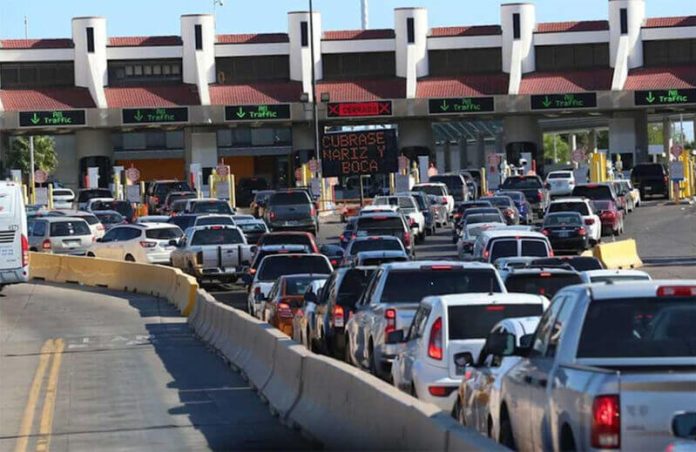The United States land border will reopen to nonessential travelers who are fully vaccinated against COVID-19 on November 8, Foreign Minister Marcelo Ebrard said Friday.
His announcement came two days after the United States announced it would reopen its land borders in early November for nonessential travel from Mexico and Canada.
Vehicular, rail, ferry and pedestrian border crossings from Mexico and Canada have been limited to essential travel since March 2020 as part of measures to combat the spread of the coronavirus. Mexico relaxed its border restrictions in April but didn’t strictly enforce the closure to nonessential travel before that.
Ebrard said on Twitter that the United States government had informed Mexico of the reopening date. “It will apply for vaccinated people,” he wrote.
People who have continued to cross the border for essential reasons during the pandemic, such as truck drivers and students, will have to show proof of vaccination starting in January.

Meanwhile, White House Assistant Press Secretary Kevin Munoz announced Friday morning that the requirement for incoming air travelers to be fully vaccinated will also take effect on November 8.
“The US’ new travel policy that requires vaccination for foreign national travelers to the United States will begin on November 8. This announcement and date applies to both international air travel and land travel. This policy is guided by public health, stringent, and consistent,” he wrote on Twitter.
Air travelers will also have to present a negative result from a COVID test performed no more than 72 hours before traveling but people crossing the land border will be exempt from that requirement.
United States-bound travelers need to be vaccinated with World Health Organization-approved vaccines, a requirement that precludes the entry of millions of Mexicans vaccinated with the Russian Sputnik V and Chinese CanSino shots.
Nevertheless, the upcoming reopening is good news for residents of Mexican border communities, many of whom crossed the border frequently before the pandemic to go shopping, visit family and friends and carry out other activities deemed nonessential.
Manuel Lira Valenzuela, president of the Sonora branch of the national restaurant association Canirac, said that restaurants in the northern border state will be able to reduce their costs by once again purchasing supplies in the United States, while Julio César León, head of the Nogales branch of the National Chamber of Commerce, said the border reopening will provide a boost to the economy on both sides of the border.
“It’s the good news we were waiting for; this has to reactivate the economy because we’ll have more freedom of movement, both from the United States to here and vice versa,” León said.
However, some business owners in Sonora had misgivings about the reopening, asserting that their trade will in fact decline.
The Confederation of Chambers of Commerce, Services and Tourism (Concanaco) said in July that Mexicans who would normally shop in the United States had spent an additional 45 billion pesos (US $2.2 billion) in Mexican border cities since the beginning of the pandemic.
The inability of many Mexicans to cross into the United States benefited businesses in Mexican border cities from Tijuana in the west to Matamoros in the east, said Julio Almanza, a Concanaco vice president in the northern border region.
With reports from Milenio and El Imparcial
